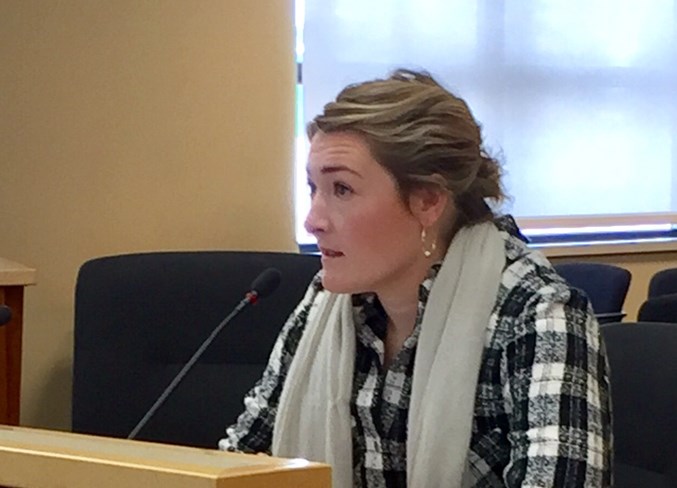Mountain View County council has been given an update on activities, plans and challenges facing the Canadian oil and gas industry.
Kelly McTaggart, advisor community engagement with the Canadian Association of Petroleum Producers (CAPP), appeared as a delegation during the recent regularly scheduled council meeting.
During a 30-minute appearance, McTaggart said CAPP members now produce 80 per cent of Canada’s natural gas and crude oil, with associate members providing a “wide range of services that support the upstream crude oil and natural gas industry.”
She said two main challenges facing the industry are the need for better access to foreign markets and increased competition from the U.S.
China and India are the two largest emerging markets for energy, and Canadian producers want to increase access to both countries, she said.
Pipeline capacity out of Western Canada is currently full, with rail traffic taking up some of the slack, she said.
The completion of three major projects would be a benefit to the Canadian industry, those being Enbridge Line 3, Keystone XL and the TransMountain expansion, she said.
Regarding natural gas, she said the market share in Eastern Canada has stabilized, although new U.S. pipelines are soon coming up to Ontario, she said.
Current competitive challenges facing the industry include “high degree of policy and regulatory uncertainty, significant delays in regulatory approvals compared to competing jurisdiction, and significant cumulative costs of recent policy changes,” she said.
Coun. Al Kemmere asked McTaggart about the impact of possible future increased oil shipments over the rail network.
“Up until now crude has only occupied about nine per cent of the rail space,” said Kemmere. “How much impact (increase) is that going to have on the other commodities? We have an agriculture community as well and we are going to get push back that it is pushing grain off the rails.”
McTaggart said, “Our rail capacity is really full in Canada; there are only so many cars they have to ship crude. No doubt there will be an impact on other commodities. What that will look like we are not really sure. I will say we need to get our product out. Pipeline lines are for sure the best way to go.”
Kemmere asked about adding value to petroleum products in Canada.
“Is there a lot of discussion at CAPP about trying to do more value added process?” he said. “Is CAPP advocating for more value added?”
McTaggart said, “We are always advocating on innovation in the industry. We’ve some hard hits in terms of refining in the last couple of years, Energy East being a good example. It wasn’t economically viable to move forward with that project. There are some companies that are focusing on product development.”
Coun. Peggy Johnson said CAPP companies should continue to consider the environmental impacts of their operations.
“There are lots of wells being drilled in our community, sometimes five wells per quarter section,” said Johnson. “I think the farmers and the oil companies have done a good job of cohabitating and part of the reason we can cohabitat so well is because of environmental laws.”
Council received McTaggart’s report for information.



